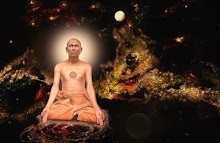
Boxing Day 2004 was shattered by the developing news of the tsunami disaster in the Indian ocean and as more and more details of the horrific results of this tragedy emerged we have had to try to come to terms with one of the greatest natural disasters of the last 50 years.

Of course ‘disasters’ happen all the time and often they are close and personal or in our extended families. And then there are the larger events such as train crashes which affect dozens of lives. But this ‘tsunami’ event we have witnessed has affected millions of lives across many countries not just because of the widespread effect of the giant waves crossing the ocean but also because of the large number of people on holiday in those parts. It is, perhaps, this all encompassing effect that has made this tragedy so prominent in our news programmes and newspapers and such a challenge to our thinking about God and the way God works in the world.

To those who profess no belief in God, such a violent and destructive event tends to reinforce those views. To those who do believe in God, it raises questions about why God allows such things and why he does not intervene – and these questions inevitably bring doubt and disbelief. After all we might not be surprised if bad things happened to bad people but when bad things happen to good people or innocent people we are at a loss to explain it.
But how might we begin to try and make sense of all of this?
I think we need to start with asking ourselves who we really are. Are we just a wonderful human body driven by a vastly complex brain and so able to operate in the natural world around us? Or are we really deep inner spiritual beings with the potential to grow as we come to terms with the events that affect our lives?
I certainly feel that we are indeed spiritual beings and that the greatest gift God gives us is the freedom to choose on the one hand to be selflessly loving in our relationships with others or on the other hand to be selfishly loving towards ourselves. As we take what this freedom offers and choose the selfless pathway, then we grow spiritually, and this growth can continue past the death of our physical bodies and on to eternity.
But what if God did intervene in a disaster? What scale of disaster would merit this divine intervention? Would it only be something on the scale of the ‘tsunami’ event or would smaller scale disasters also receive God’s attention? Would family tragedies also be avoided by God’s intervention? Commonsense suggests that if God intervened at all there would be no limit to that intervention and ultimately nothing in the world would go wrong, whether caused by nature or caused by men and women. Our world would become a world in which we existed like robots, with no problems or difficulties to face and where choices to act selflessly or selfishly would be meaningless.
So we have an apparent paradox that whilst we can think of God as all powerful, nevertheless God cannot act against his love that we should live in freedom. God doesn’t want disasters or accidents or terminal illness but these are allowed because only in that way can true spiritual freedom be maintained.
Now this is an easy thing to say if you are not watching a loved one being swept away by a tidal wave or if you are not caring for someone dying as a result of some terrible accident. In these situations no words can really give comfort, however true they maybe, it is only love that can make a difference.
But don’t we often say that God is Love?. We might ask the question – “where is God at work in the ‘tsunami’ disaster?” and if we cannot find an answer it is probably because our understanding of God is limited in some way (perhaps by thinking that God should act as we act in a “quick fix” kind of way). But if this is so then we should ask instead – “where is Love in this disaster?” And surely an answer to this question comes immediately! We have seen love at work in the desperate attempts by people to save those overwhelmed by the gigantic waves, even if in that attempt they lost their own lives. We have seen love at work in the rescue workers searching hour after hour, day after day, to find those whose lives could be saved. We have seen love at work in the outpouring of concern and giving around the world. And in all this love, is God.
Bad things happen. We know that from our own personal experience and we also know it from observing the world around us. But however bad the situation it is love that can lift us up and lead us forward again. And the source of all the true love we can experience and share with others is God.
“Saying that God allows something to happen does not mean that he wants it to happen but that he cannot prevent it because of his goal, which is our salvation.”


No comments:
Post a Comment